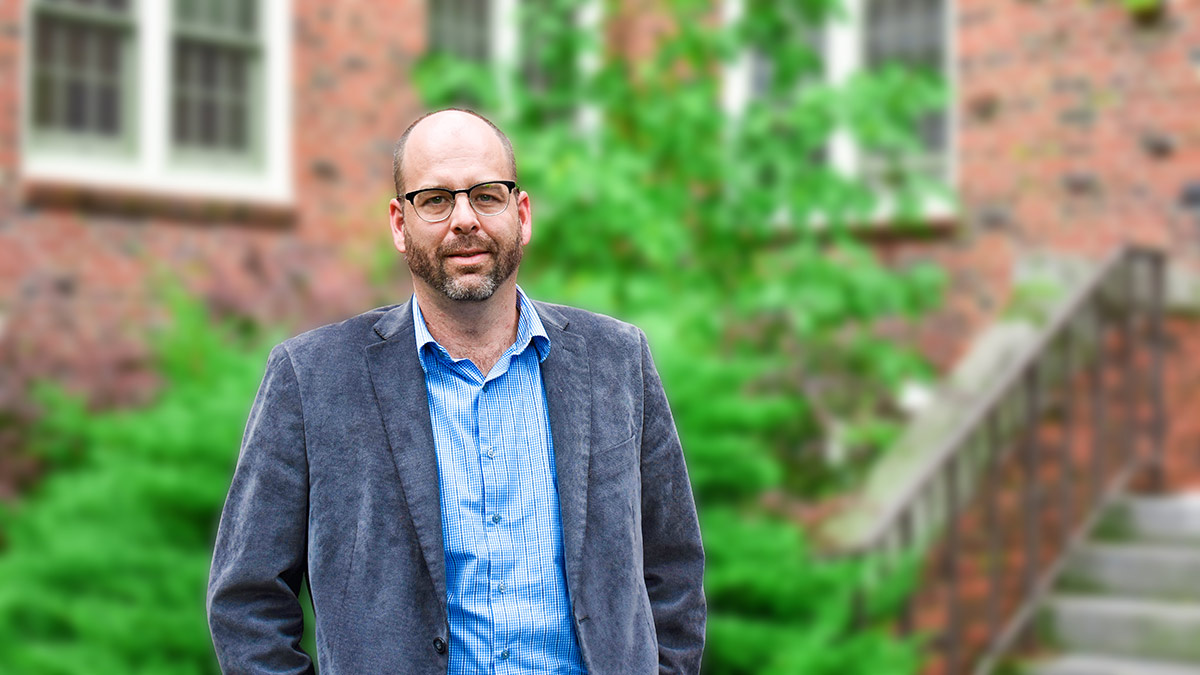Understanding Complex Phenomena
Opportunities for Sociology and Anthropology Department with New Chair
Associate Professor Brian Wolf believes that sociology is about moving beyond common sense explanations about human behavior and getting people to see new ways of understanding complex phenomena.
“The problem with common sense is that it is too common. Common sense says the Earth is flat; it is the same for the social world,” Wolf said. “I think the best thing about studying sociology is that it sharpens your imagination. You have to be imaginative to study something you can’t even see — have you ever seen a society?”
As the new chair for the Department of Sociology and Anthropology in the College of Letters, Arts and Social Sciences, Wolf hopes to continue to grow the number of undergraduates in the sociology and anthropology programs. He believes that is the most important aspect of his role.
“Students in our department have the opportunity to take part in some really neat experiential learning opportunities,” Wolf said. “Some students participate in police citizen academy for credits, others go to Europe, while others do archaeological digs.”
Wolf has led international trips with students to teach and conduct research in Europe and Southeast Asia.
In addition, he looks forward to promoting the excellent works of the department’s faculty and research.
“We have really wonderful faculty and are a growing department. I can’t wait to see the real impact our research will have on the world,” Wolf said. “We have people doing research of police oversight agencies, rural women farmers and northwest Indian tribes. I’m so excited to be a part of that.”
Wolf, who received his doctorate in sociology from the University of Oregon, focuses his research and teaching on the intersection between organizations, crime and social control. However, he’s most interested in deviance, white-collar crime, policing, theory and inequalities in the justice system.
“I have a commitment to issues of justice and fairness, but others are drawn to crime, criminology and deviance because it gives them a voyeuristic attitude,” Wolf said. “It’s no accident crime and cop shows are the most viewed.”
Since taking on new administrative roles, Wolf decided not to teach during the fall 2017 semester, allowing him more time to research and dedicate to working on his book, “Good Trouble,” the result of a 10-year research project about how crime and deviance may cause important social change. He said it “kind of challenges the whole way people think about crime.”
Wolf, who’s family totals five generations in Idaho, says this state has a great work/life balance compared to other states.
“I know they say we are ‘big enough to matter, but small enough to care’ and I love that,” Wolf said.








